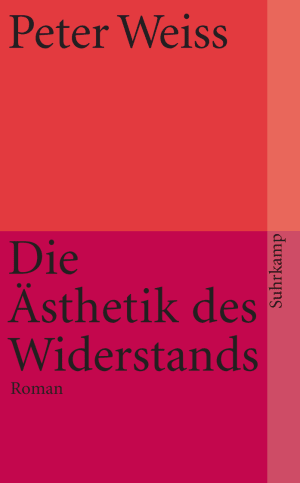Leavetaking
English world rights (Melville House Books), Spanish world rights (Alpha Decay), Sweden (Bonniers), Czech Republic (Opus), Greece (Kritiki), Ukraine (Krapky)
Previously published in the respective language / territory; rights available again: France (Seuil), Netherlands (Meulenhoff), Denmark (Niels Bings), Finnland (Otava), Japan (Kawade Shobo), Poland (PIW), Slovakia (Slovensky Spisovatel), Serbocroatian world rights (RAD), Israel (Am Oved)
Domestic Rights Sales: German Audiobook (DAV)
A brilliant, brutally honest autobiographical novel, from one of the great artistic polymaths of the 20th century.
This is a Sebaldian account of the narrator’s attempt to break free of a repressive upper-middle-class upbringing and make his way as an artist and individual, written in a single incantatory paragraph.
Leavetaking is the story of an upper-middle-class childhood and adolescence in Berlin between the wars. In the course of the book,...
A brilliant, brutally honest autobiographical novel, from one of the great artistic polymaths of the 20th century.
This is a Sebaldian account of the narrator’s attempt to break free of a repressive upper-middle-class upbringing and make his way as an artist and individual, written in a single incantatory paragraph.
Leavetaking is the story of an upper-middle-class childhood and adolescence in Berlin between the wars. In the course of the book, Weiss plumbs the depths of family life: there is the early death of his beloved sister Margit, the difficult relationship with his parents, the fantasies of adolescence and youth, all set in the midst of an increasing anti-Semitism, which forces the Weiss family to move again and again, a peripatetic existence that only intensifies the narrator’s growing restlessness.
The young narrator is largely oblivious to world events and focused instead on becoming an artist, an ambition frustrated generally by his milieu and specifically by his mother, who, herself a former actress, destroys his paintings during one of the family’s moves. In the end, he turns to an older mentor, Harry Haller, a fictionalized portrait of Hermann Hesse, who encouraged and supported Weiss, and with Haller’s example before him, the narrator takes his first steps towards a truly independent life. Intensely lyrical, written with great imaginative power, Leavetaking is a vivid evocation of a world that has disappeared and of the narrator’s developing consciousness.
»A dynamic work, a re-creation and exorcism of the past rather than a recollection of it in tranquility […] Wholly succeeds in fusing a new realism with a new imaginative vision.« Michael Hamburger, The Times Literary Supplement
»[The US edition with Melville] is the most under-covered, undervalued release of 2014. Weiss is one of the four or five greatest post-war European authors, and this autofictional masterpiece more or less superannuates all of the autofiction that follows. A brutally honest account of bourgeois decay, artistic development – Weiss was a polymath who painted, filmed, and wrote in virtually every form – and sexual maturation […]« Flavorwire, 50 Best Independent Fiction and Poetry Books of 2014
»Must be counted among the most important European authors of the 20th century.« The Complete Review
»A dynamic work, a re-creation and exorcism of the past rather than a recollection of it in tranquility […] Wholly succeeds in fusing a new realism with a new imaginative vision.« Michael Hamburger, The Times Literary Supplement
»[The US edition with Melville] is the most under-covered, undervalued release of 2014. Weiss is one of the four or five greatest post-war European authors, and this autofictional masterpiece more or less superannuates all of the autofiction that...
Persons
Peter Weiss
Peter Weiss (1916–1982) was a German writer, painter, graphic artist and experimental filmmaker. He is best known for his plays Marat/Sade and Die Ermittlung, as well as the monumental three-volume historical novel Die Ästhetik des Widerstands. Born in Germany in 1916, he began his career as visual artist, studying at the Prague Art Academy in the late 1930s. After the German occupation of the Sudetenland, his family moved to Sweden where Weiss would spend the rest of his life, becoming a Swedish citizen in 1946. His work won many major German literary awards and Peter Brook’s production of Marat/Sade received the Tony Award for Best Play in 1966.
Peter Weiss (1916–1982) was a German writer, painter, graphic artist and experimental filmmaker. He is best known for his plays...
OTHER PUBLICATIONS

The Aesthetics of Resistance
The three-volume novel The Aesthetics of Resistance is the crowning achievement of Peter Weiss, the internationally renowned dramatist best known for his play Marat/Sade....
English world rights (Duke UP), Spanish world rights (Fondo de Cultura Económica), Chinese simplex rights (Henan UP), France (Klincksieck), Italy (Settecolori), Sweden (Bonniers), Korea (Moonji), Slovak Republic (slovart), Serbia (Kontrast), Turkey (Iletisim)
Previously published in the respective language / territory; rights available again: Netherlands (Historische Uitgeverij), Denmark (Rosinante), Norway (Pax)

The Persecution and Assassination of Jean Paul Marat
USA (Dramatic Publishing), UK (Marion Boyars), Spanish world rights (Adriana Hidalgo), France (L’Arche), Japan (Hakusuisha), Czech Republic (Artur), Turkey (Imge), Albania (K & B), Georgia (Ilia State UP)
Previously published in the respective language / territory; rights available again: Catalan rights (Institut del Teatre), Brazilian Portuguese rights (Peixoto), Italy (Einaudi), Netherlands (Meulenhoff), Denmark (Niels Bings Forlag), Sweden (Bo Cafevors), Norway (Gyldendal Norsk), Finnland (Otava), Korea (Sung Kyun Kwan UP), Slovakia (Slovenske Krasnej Literatury), Hungary (Hollo Es Tarsa)

The Investigation
USA (Dramatic Publishing), UK (Marion Boyars), France (L’Arche Editeur), Italy (Einaudi), Sweden (Faethon), Korea (GIYI Press), Turkey (Alfa)
Previously published in the respective language / territory; rights available again: Spanish world rights (Grijalbo), Netherlands (Meulenhoff), Denmark (Niels Bings Forlag), Norway (Pax), Japan (Hakusuisha), Czech Republic (Orbis), Hungary (Europa), Romania (Paralela 45), Slovenia (Rilindja- Pristina), Turkey (Sinan)

